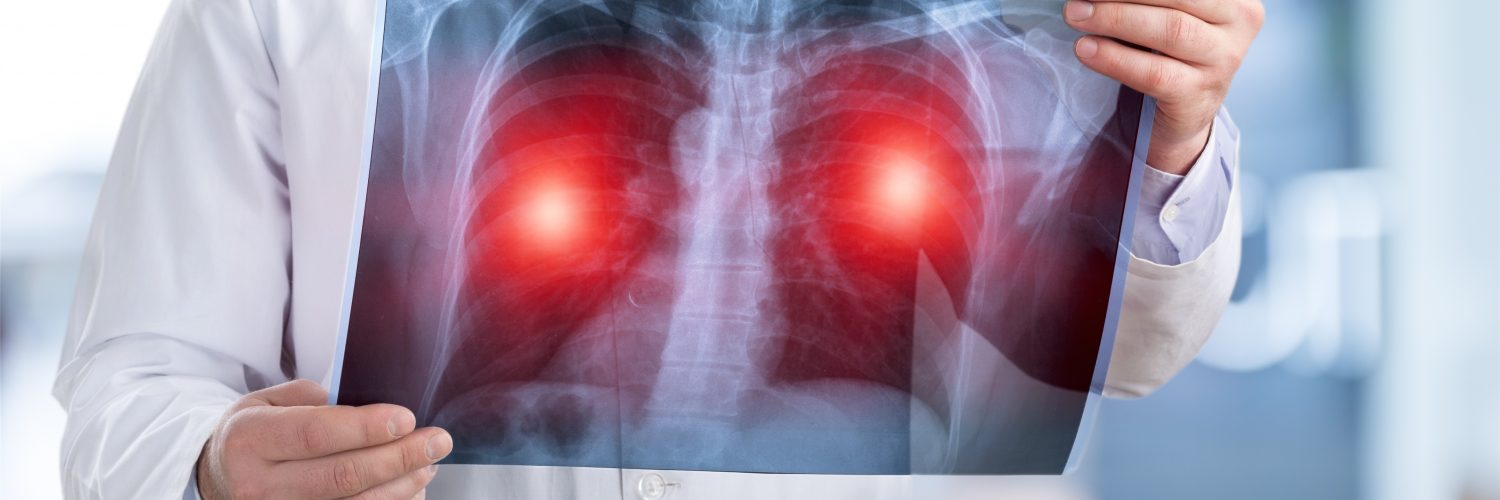Among the theological paradoxes of our faith is that while it is elemental that anything that befalls a person is decreed in Heaven, a person is nevertheless obligated to actively guard his health (as we have discussed extensively in numerous prior essays). This dichotomy is relevant to the question of accountability for contracting respiratory tract infections and also has a fascinating Halachic implication.
Tzinim and Pachim on the path of the stubborn; he who protects his life will distance himself from them. (Mishlei 22:5)
The Gemara (Kesubos 30a) cites this Pasuk amid a deep Halachic discussion about “Kim Lei b’Deraba Minei” (the rule that a defendant who committed a crime deserving of two or more punishment only receives the most stringent one and is not liable to additional punishment). We will not delve into that discussion but will focus on some of the exchanges recorded by the Gemara that are relevant to our topic.
The Gemara quotes YaakovAvinu’s warning to his sons: “My son [Binyomin] shall not descend with you, because his brother has died and he alone remains, and perhaps an ‘Ason’ shall befall him on the path that you will follow – and you will have lowered my old age into the grave in grief” (Bereishis 42:38). Abaye defines “Ason” as a “disaster at the hands of Heaven – Ason b’Yedei Shamayim”, such as “Tzinim and Pachim”, and not a “disaster at the hands of man – Ason b’Yedei Adam”, such as a murder in the course of a brawl[1]. However, Rav Ada bar Ahava challenges Abaye’s interpretation. How do we know that Yaakov specifically warned his sons against a disaster b’Yedei Shamayim? Perhaps he was warning them against lions and bandits, which are “b’Yedei Adam”? The Gemara ultimately concludes that Yaakov likely warned his sons against all kinds of disasters, both b’Yedei Shamayim and b’Yedei Adam.
In any case, the Gemara proceeds to question the assumption that Tzinim and Pachim are disasters b’Yedei Shamayim, while lions and bandits are disasters b’Yedei Adam. After all, the following B’raisa indicates precisely the opposite! (The Gemara retracts its assumption as a result of this challenge).
“Everything is by the hands of Heaven, except for Tzinim and Pachim, about which is said: “Tzinim and Pachim on the path of the stubborn, he who protects his life will distance himself from them”. Furthermore, are lions and thieves considered b’Yedei Adam? Surely Rav Yosef said, and so did Rabbi Chiya teach: “From the day the Beis Hamikdash was destroyed, even though the Sanhedrin was abolished, the four death penalties were not abolished. Not abolished?! But they were abolished! Rather, it means that the liability for the four deaths was not abolished: Whoever is deserving of death by stoning either falls from a roof or is crushed by an animal; whoever is deserving of death by fire either falls into a fire or is bitten by a snake; whoever is deserving of decapitation is either handed over to the monarchy or attacked by bandits; whoever is deserving of death by suffocation either drowns in a river or dies of asphyxiation.”
Our first task is to explain this passage, particularly the definitions of Tzinim and Pachim. Rashi translates Tzinim and Pachim as cold and heat respectively. The Rashbam (Bava Basra 144b) argues that heat is not particularly dangerous, and he interprets both Tzinim and Pachim as referring to cold: cold is both a thorn in the side (Tzinim) and a snare in the path (Pachim) of man.
While the Gemara initially entertains the possibility that Tzinim and Pachim are considered b’Yedei Shamayim, it concludes that this is not true, as the Pasuk indicates that man is responsible for protecting himself from them. Presumably, the rationale behind the Hava Amina is that man does not actively bring Tzinim and Pachim onto himself; he can at most cause them indirectly. The S’vara in the Maskana is most likely that since a person could have protected himself from the elements, he is considered to have brought any resulting harm upon himself.[2]
Regarding lions and bandits. The Gemara initially assumes that these are considered b’Yedei Adam, that is, natural events not directly orchestrated by Divine decree. However, the Gemara concludes that these are regarded as outcomes of special Divine decrees meted out to those deserving of one of the four death penalties.
It is interesting that falling from a roof is listed among the disasters b’Yedei Shamayim. Even though an accident of this sort could presumably have been avoided if the victim had behaved more cautiously, Chazal assert that it befell the person to fulfill a deserved death sentence and is considered to have been wrought b’Yedei Shamayim, as opposed to regular Tzinim and Pachim.[3]
At this juncture, it is worthwhile to quote the comments of the Ma’avar Yabok[4], who warns against those who belittle the duty to protect oneself against communicable diseases and the like:
Sicknesses – there are those that come about due to peoples’ folly such as Tzinim and Pachim. These are comparable to suicide for which a person will be held accountable. Similarly, a person who causes himself to become sick by pursuing his desires, and those who do not attempt a Refua are included in this category, and they are considered sinners. If he misses work on account of the illness, his money will also be demanded from his hand.”
Finally, before tackling a fascinating halachic implication of these concepts, we will share the words of the Ksav Sofer (Chulin 56a). The Ksav Sofer offers a “metaphorical” interpretation of the aforementioned Pasuk in Mishlei:
It is well known how they metaphorically interpret the Pasuk, ‘Tzinim and Pachim… one who protects his soul…’: One who is accustomed to always keeping himself away from them will ‘have to keep his distance from them’ because once he has accustomed himself to doing so, he is incapable of withstanding them. On the other hand, to a person who was not as careful and has become a little accustomed to them, they cannot cause so much harm.”
According to this interpretation, those who scrupulously avoid contagious diseases become more susceptible to them. They are therefore obligated to continually stay away from the risk factors for contracting them. On the other hand, those who are not excessively cautious develop immunity to these diseases and may take fewer precautions. Of course, this is not the literal interpretation of the Pasuk!
Let us now turn to a related Halachic issue:
One of the most painful and difficult Halachic issues of Pesulei Kahal – those banned from marrying a spouse with “Kahal-pedigree” – is the Petzu’a Daka – a person whose testes have been injured and is therefore forbidden from marrying into the Kahal. The Gemara (Yevamos 75b) qualifies the prohibition. It states that just as the invalidity of the Mamzer (a child born from an illegal union carrying the penalty of Kares) befalls him “at the hands of man” – i.e., due to his parents’ actions – so is the Petzu’a Daka only invalid when his injury befalls him “at the hands of man”, as opposed to “at the hands of Heaven”. The Rishonim argue about the definition of b’Yedei Shamayim and b’Yedei Adam in this context.
Rashi explains that a Petzu’a Daka b’Yedei Shamayim includes a person who sustains his injury due to thunder or hail, as well as one who was born that way. In other words, we consider testicular damage b’Yedei Shamayim whether it is congenital or the result of a sudden “natural” event (unlike the Tosfos Rid who holds that only congenital malformations are considered b’Yedei Shamayim). The Rosh (ibid. 2) adds that according to Rashi the malformation must befall a person out of the blue. If a person contracts a disease that causes testicular injury, it would not be considered b’Yedei Shamayim. The Chochmas Shlomo challenges the Rosh’s interpretation of Rashi. What is the difference between thunder, hail, and sickness – surely all are decreed by Heaven and cannot be ascribed to human action!
The Korban Nesanel suggests a different interpretation of the Rosh. The Rosh was specifically referring to surgical removal of the testes that is required to cure an illness. The Chiddush is that even though the illness is definitely considered b’Yedei Shamayim, since the castration was a deliberate human act, he is considered a Petzu’a Daka b’Yedei Adam.
The Rambam takes an opposing position to Rashi and the Rosh. In Hilchos Isurei Bi’ah (16:9), he rules that anyone who develops an illness that destroys his reproductive organs or develops boils that cause them to wither away or need amputation is permitted to marry into the Kahal because he is considered Petzu’a Daka b’Yedei Shamayim, not b’Yedei Adam.[5] Both opinions are cited by the Shulchan Aruch (E.H. 5:10), but he leans towards the Rambam’s more lenient position (see the Poskim there).
The Chemdas Shlomo (E.H. 45) explains the basis of the argument in depth. To explain the view of the Rosh, he cites the Rambam in Hilchos De’os, who writes at length as to how a person should act to maintain his health. The Rambam explains that most sickness results from behaviors that are harmful to one’s health. He goes so far as to guarantee that whoever follows his guidance will never require a doctor and his body will remain healthy and sound. The Chemdas Shlomo suggests that the Rosh considered sicknesses that lead to testicular damage as an injury b’Yedei Adam, for they could have been avoided through healthy lifestyle choices. He relates that he was pleased to discover that this explanation was also offered by the Beis Meir (5).
However, if this is the case, how are we to understand the Rambam’sposition? His statement in Hilchos De’os contradicts his Psak in Hilchos Isurei Bi’ah! To resolve this difficulty, the Chemdas Shlomo suggests: “One has no choice but to say that even though the issue began due to negligence, nevertheless, initially it was certainly easy to heal, and the primary cause of the completion [of the sickness] was at the hands of Heaven, and the original [behavior] is just an indirect cause.”
In other words, according to the Rambam, it is impossible to blame diseases entirely on unhealthy behavior(s), such as poor nutrition and inadequate exercise, even though they are associated. This is because illness resulting from poor lifestyle choices is initially easily cured, and those lifestyle choices can only be considered an indirect cause of any subsequent deterioration. For this reason, the Rambam concludes that any aggravation of the disease and resulting organ damage are considered b’Yedei Shamayim.
The Tevuos Shor[6] (36) also adopts this approach. He too explains that the Rosh’s view is that most sicknesses are self-inflicted due to unhealthy behaviors and cites the aforementioned Gemara in Kesubos as evidence for this position.
The Chasam Sofer (3, E.H. 1:19) was asked to rule on the unfortunate case of “a destitute pauper who traveled in a wagon [while sitting] on barrels and immediately felt pain in his testes, sometimes he felt it and at other times he did not. Eventually, he became bedridden, and his entire scrotum was swollen, to the extent that he was forced to travel to the city of Pest, where the doctors removed his right testis. When he came home, I said that there is doubt whether he is allowed to retain his wife, due to ‘A Petzu’a Daka may not enter…’[7]“.
At the end of his response, the Chasam Sofer comments:
However, with regard to the matter before us, it is necessary to examine it well, because his pain came to him by sitting forcibly on the barrels. Had it been clear to us that they were injured then, that would literally be b’Yedei Adam. However, without a doubt, had he come before us then we would not have separated him from his wife… Are all men who experience testicular pain to be considered a possible Petzu’a Daka? We would have established the man according to his Chazaka – the precedent that nothing had happened to him. And even though it swelled up because of it and became infected to the extent that the doctors were forced to surgically remove it, this is because of his laziness in not [seeking out medical care] immediately, to the degree that he became ill due to Tzinim and Pachim and miasma. This [case] is better than someone who drinks a castrating potion, and so it is possible that even Rashi [would] agree that this is called b’Yedei Shamayim, and it is not the same as Mamzer, and he is permitted [to his wife] according to all opinions.
In other words, the Chasam Sofer’s opinion is that even when the onset of the disease can be directly attributed to human action, if the condition worsened afterward due to Tzinim and Pachim, all opinions agree that the testicular damage is b’Yedei Shamayim. On the face of it, this would be all the more applicable in a case where the onset of the sickness is not associated with human action but is fully attributable to Tzinim and Pachim.
However, his argument requires explanation. Why is this any different from other illnesses that are considered b’Yedei Adam, as stated explicitly by the Gemara?
It must be that our assumption is incorrect. In fact, according to the Chasam Sofer, a standard case of testicular damage due to Tzinim and Pachim would be considered by Rashi to be b’Yedei Adam. The Chasam Sofer’s argument only applies to the person who was injured while riding on a wagon. In that case, the initial injury made him susceptible to infection. As a result of his injury, he was no longer capable of protecting himself from Tzinim and Pachim through healthy behaviors. Therefore, the onset of the infection was considered out of his control and b’Yedei Shamayim.[8] However, this does not apply to a regular person, who can protect himself from Tzinim and Pachim by taking standard precautions. Were such a person to be negligent, Rashi would consider him damaged b’Yedei Adam and ban him from marrying into the Kahal.
[1] See Shemos 21:22
[2] This is why the Ritva maintains [Bava Basra ibid.] that any harm that a person can avoid is considered “Tzinim and Pachim”; there is nothing unique about infections associated with cold and heat. Therefore, the Gemara’s principle is equally applicable to harm resulting from eating an unhealthy diet, for example.
[3] Of course, this does not diminish the duty to take necessary precautions to protect one’s life. After all, there is a Mitzva to install a Ma’akeh on all rooftops. One is not entitled to say, “If I am deserving of death – I have no way to avoid it, and if I am not deserving of death, I will not fall to my death.”)
[4] R’ Aharon Berechia of Modena (1549-1639), a student of R’ Menachem Azaria m’Fano and a notable Italian Rav and Mekubal.
[5] There is a contradiction in the Rambam’s writings on this issue – in the Perush haMishnayos he writes otherwise. Mahari Beirav (2) suggests several ways to resolve the contradiction, maintaining that the Rambam’s Halachic position is as stated in Mishna Torah.
[6] R’ Alexander Sender Shur (~1673-1737), Rav and Posek in Poland.
[7] Devarim 23:2
[8] This is despite the fact that it was his fault “because of his laziness in not seeking immediate medical care.”
ot seeking immediate medical care.”















Add comment